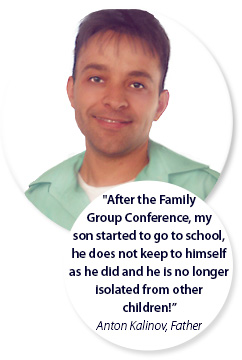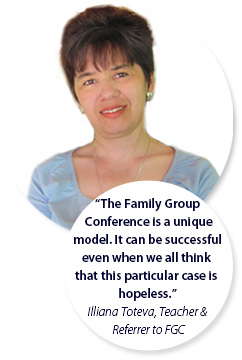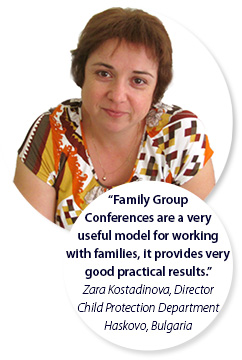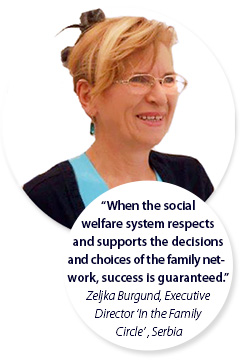‘You feel that people care about you’.
Researchers have published about their qualitative research on Family Group conferences for suicidal adolescents in ‘Tijdschrift voor Psychiatrie’ (Magazine for psychiatry). They wrote about one of the cases they researched. It is an impressive story that shows the strength of this adolescent and his circle. In case of suicidality a supportive network and a sense of belonging are helpful. But the network often doesn’t know what is going on or is watching from the sidelines and doesn’t know how to be of any help. This story from the researchers shows how the network can play a role.
Breaking through loneliness
A 17-year old boy was hospitalized after he attempted to commit suicide. It was his ninth attempt. He felt lonely and often argued with his parents, who were divorced. In bad periods, it was very difficult to activate him. He withdrew into his shell, didn’t go to school, didn’t go to therapy and didn’t go out with friends. Of course the practitioners tried to break through to him, but they succeeded only partly. In the article the researchers mention that one of the reasons is that the assistance occurs at a distance, from a role that makes it difficult to actively involve people who care. That is why these practitioners thought about a Family Group Conference.
From passive to active
The boy reacted dismissively when they proposed the Family Group Conference. He felt ashamed and was not willing to talk with a large group about his problems. When he noticed some positive reactions, he became more active. Already during the preparation his behaviour changed from a passive to a more active attitude and this change continued. Eventually 32 people came to the conference, among them many of his friends. The system therapist gave information about his situation. Thanks to this information the network understood more about the problems and they started getting a picture of what they could do for him and how to deal with the suicidality.
Less suicidal
‘The biggest advantage is that people have a better understanding’, says the boy, ‘When you start a treatment group, you don’t want to involve anybody, but at a Family Group Conference you feel that people care about you and that makes it easier to talk about the problems and ask for help’. The practitioners that are involved, the network and the boy mention three themes that make the change possible: feeling less as a burden/ breaking through the isolation, activation and seeing sustainable results. Because of this, the boy has become less suicidal and benefits more from the therapy.
A story from the Netherlands
<< back to overview




